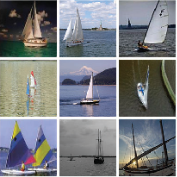Face anti-spoofing (FAS) is an essential mechanism for safeguarding the integrity of automated face recognition systems. Despite substantial advancements, the generalization of existing approaches to real-world applications remains challenging. This limitation can be attributed to the scarcity and lack of diversity in publicly available FAS datasets, which often leads to overfitting during training or saturation during testing. In terms of quantity, the number of spoof subjects is a critical determinant. Most datasets comprise fewer than 2,000 subjects. With regard to diversity, the majority of datasets consist of spoof samples collected in controlled environments using repetitive, mechanical processes. This data collection methodology results in homogenized samples and a dearth of scenario diversity. To address these shortcomings, we introduce the Wild Face Anti-Spoofing (WFAS) dataset, a large-scale, diverse FAS dataset collected in unconstrained settings. Our dataset encompasses 853,729 images of 321,751 spoof subjects and 529,571 images of 148,169 live subjects, representing a substantial increase in quantity. Moreover, our dataset incorporates spoof data obtained from the internet, spanning a wide array of scenarios and various commercial sensors, including 17 presentation attacks (PAs) that encompass both 2D and 3D forms. This novel data collection strategy markedly enhances FAS data diversity. Leveraging the WFAS dataset and Protocol 1 (Known-Type), we host the Wild Face Anti-Spoofing Challenge at the CVPR2023 workshop. Additionally, we meticulously evaluate representative methods using Protocol 1 and Protocol 2 (Unknown-Type). Through an in-depth examination of the challenge outcomes and benchmark baselines, we provide insightful analyses and propose potential avenues for future research. The dataset is released under Insightface.
翻译:暂无翻译




